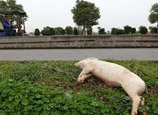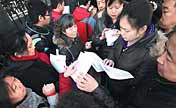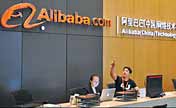
Investment bank UBS AG on Tuesday forecast a 20 percent increase in the A-share market until the end of the year, on predictions that short-term liquidity will remain high and corporate earnings will improve.
Chen Li, UBS' head of China equity strategy, reiterated his belief from the beginning of the year that the Shanghai Composite Index will end the year above 2,600 points, as the Chinese economy continues to recover.
"I am prudently optimistic about the A-share market this year ... though there are some downside risks," Chen said at a news conference in Hong Kong.
The Shanghai Composite Index lost 1.04 percent, or 23.99 points, on Tuesday to 2,286.61 amid trading volume of around 100 billion yuan ($16.1 billion). The index is down 5.99 percent this month, but up 16.46 percent in the year to date.
Chen expects average earnings of A-share companies to increase 9 percent year-on-year in 2013. Non-financial companies will do better, with net profit growing 12 percent. Financial companies will see a profit growth of 7 percent.
One of the major market concerns is that the regulator will reopen the gate for new share offerings after a five-month break, which some experts believe will pressure the index. Local media have reported that A-share IPOs might restart in June.
Chen said the influx of new shares won't likely drag on the market as a whole, as historical data suggest that IPOs take up only around 40 percent of the market's total financing, with the rest done mainly through rights issuance.
Stocks with small capitalizations, however, will be most affected, as they generally have higher valuations, Chen said.
"Investors tend to sell expensive shares to buy new ones, so small-cap shares will be under pressure if IPOs resume. But overall, new IPOs won't see much of an impact," he said.
For now, stocks on the small cap-focused Growth Enterprise Board have an average price-to-earnings ratio of around 37 times, compared with about 13 times for companies on the CSI 300 index, comprising mostly large-cap companies.
This month, the Chinese central bank drained liquidity through open-market operations, raising fears that authorities might have changed its monetary stance after the economy started recovering. On Tuesday, the People's Bank of China took 26 billion yuan out of the money market through bond selling.
"I don't think the central bank wants to tighten liquidity. It is just satisfied with the liquidity level right now and the operations are just aimed at keeping the level," Chen said.
He added that liquidity will remain high until June, and whether tightening will follow depends on inflation levels later this year.
















 Year's first rainfall for Beijing
Year's first rainfall for Beijing


![]()
